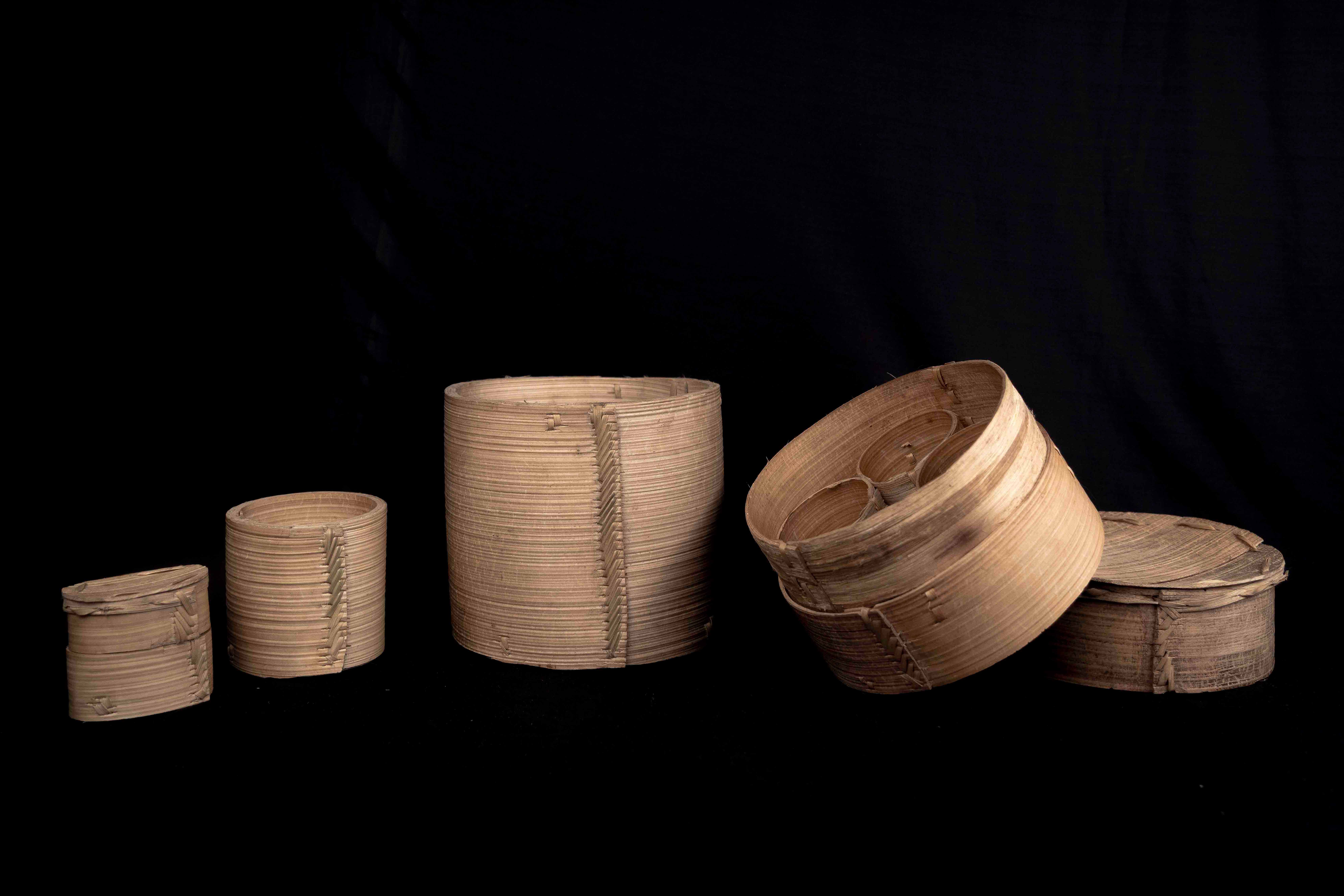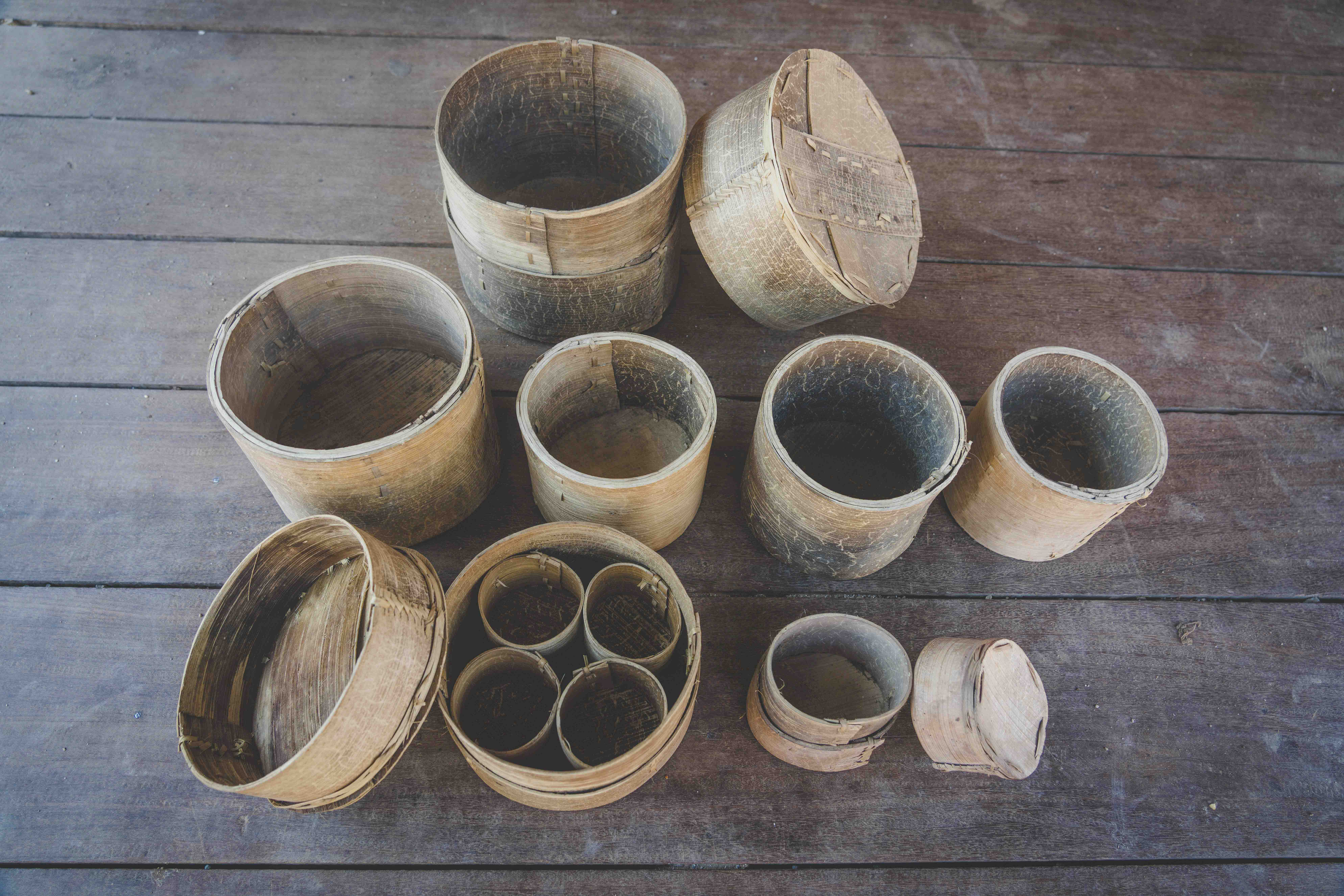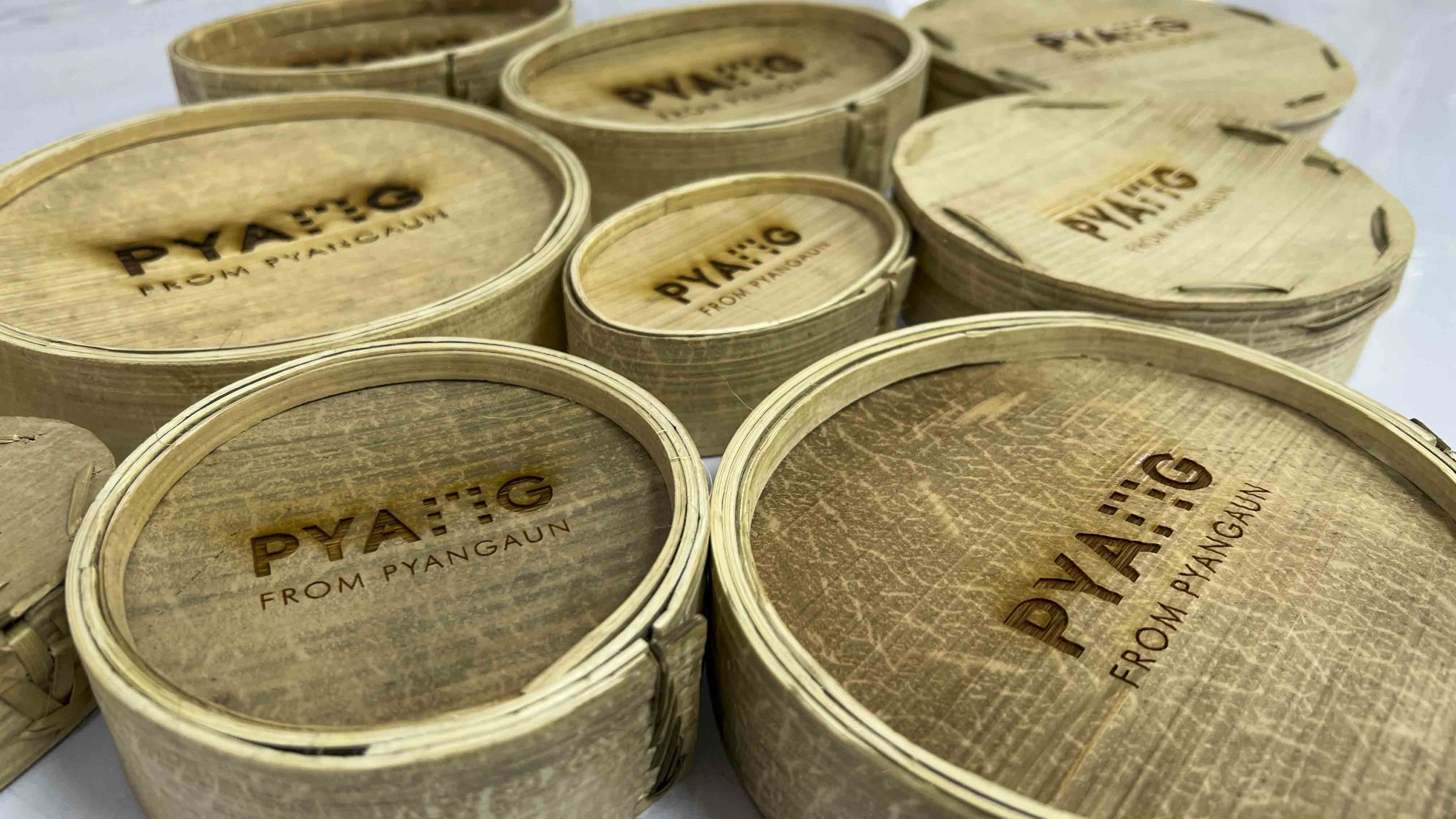
Pyang
From Pyangaun
Pyang, which means bamboo container in Newari language, is made from bamboo harvested between mid-December to mid- February when they are raw. Pyang was mostly used in the Licchavi-Malla period for measurement purposes. This product is mainly made in Pyangaun of Lalitpur district which gets its name from the product itself. In the early days people of Pyangaun used to practice bartering the containers they made out of bamboo extract with rice.

Their product is not for display or decoration but for daily use in daily life. It has a distinct feature which is - lightweight. The more these containers are used the more shining they become and their color also changes from yellow to gold. The people of this village used to buy and sell Pyangs in Pharping, Khokna, Bugmati, Godavari, Bhaktapur, Panauti and Banepa. Pyang is mainly used to store food grains, keep clothes and important papers and documents as well as medicines and spices as insects, mites and rats cannot damage it.
Three to four generations before this generation, it is found that the people living in Pyangaun have made a living by doing pyang business. Thus, because of its historical significance, it has gained such importance at national and international levels. Where language, religion, culture and business are different from other local Newars. Therefore it is a pride of place not only for the municipality but also for the country.

© PYANG | Managed by thaukothau productions